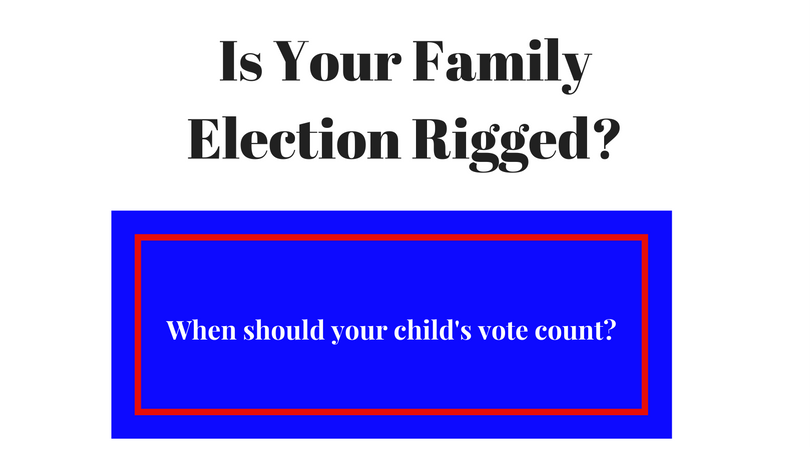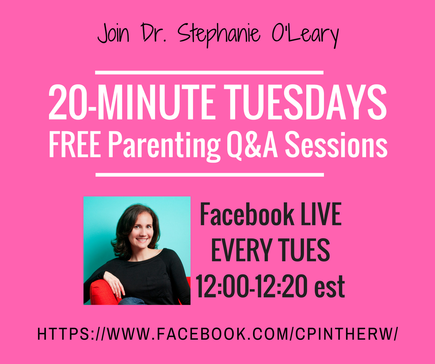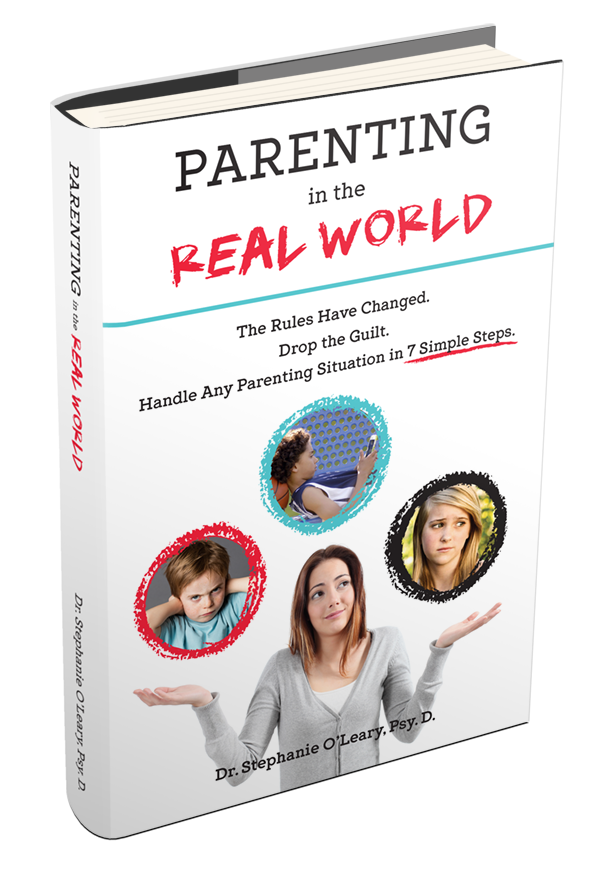|
For roughly half of the country this is an introduction that probably seems unimaginable. This morning's headlines paint an incredibly dire picture for our communities and our country. If you are a parent, I urge you to take pause and step in as a voice of reason for your child. Kids will hear a lot of things over the coming weeks but at the end of the day your words will resonate most strongly with them. Even if you're feeling defeated, do not underestimate how powerful you are when it comes to your child.
Regardless of which box you checked on election day, facing the reality of a Trump presidency means taking a firm stance on respect within your family and within your community. As a parent, it will be more important than ever to step into the spotlight and demonstrate respectful behavior. Over the next four years it's highly unlikely that Donald Trump will depart from his largely unfiltered communications. That said, you are your child's most important role model (even behind all the eye rolls, shoulder shrugs, and other indicators of being ignored). This may be hardest to pull off when it comes to voicing your opinions regarding the new leadership of our country. If you are able to share your thoughts and feelings while choosing respectful words then you set the tone that disrespect is not tolerated. If and when your child hears disrespectful commentary, it will register with them and it will feel wrong. It will feel inappropriate. At the end of the day, that's exactly what you want as a parent. I wish we lived in a world where everyone communicated respectfully, but that is not the reality. Making sure that your child expects the adults around them to adhere to the same basic rules they've learned in preschool and kindergarten will prevent them from falling into the habit of thinking rude, hurtful commentary is acceptable. Today I woke up early (despite having been up way too late last night) to tell each of my kids the outcome of the election. One was incredibly invested in the fate of the presidency, the other had chosen to remain on the sidelines of this campaign. My message to each of them was crystal clear: No matter what happens at school today I expect you to behave appropriately. I expect you to respect your friends and your teachers and to choose your words wisely when you're sharing your thoughts and your opinions. I told them that I trust they will make good decisions and that I am here for them if they have any questions. This was the best I could do this morning. I meant every word. I trust that my children will conduct themselves the way they've learned to conduct themselves because of the values our family demonstrates on a daily basis, not because of what they might see or hear from a political leader, a musician, or a professional athlete. As a parent, I stand firmly in my power this morning knowing that I have a tremendous impact on my children regardless of who lives in the White House. Please don't let anyone take that confidence away because your child needs your guidance now more than ever.
0 Comments
We all know that at 18 years of age U.S. citizens are given the right to participate in our government by voting. But well before that ripe old age, kids are voicing their ideas and weighing in on all sorts of issues at home. As a parent, it’s hard to keep up with all the opinions and it’s impossible to keep everyone happy all of the time. So, how do you figure out when to take your child’s vote into consideration and how do you manage that task while maintaining your sanity? Deciding which of the following three categories the situation falls into will help! Category 1: There’s really no other way. In this scenario, you step into the role of a parental dictator. This may carry with it some negative connotations, but let’s be honest—you have to be a dictator at times in order to keep your kids safe and sound. There’s no negotiating with your toddler who thinks it’s super fun to try and swallow tiny Lego pieces. Your school-aged child cannot stay up all night watching movies on a Tuesday and your teen absolutely does not have permission to drive a vehicle without a license. When safety is at stake or your child lacks the knowledge or maturity to fully understand the situation, you step into the role of parental dictator. You can own that title while also being respectful, listening to your child’s pleas or earnest disagreements, and calmly and confidently deciding how things will go. WHAT TO SAY TO PULL THIS OFF: I understand that this is hard or that you disagree, I trust that you can handle it. WHAT YOUR CHILD LEARNS: It’s okay to share my opinion even if mom/dad don’t agree. Things will not always go my way and I have to learn to handle that. Category 2: There’s some wiggle room. Many situations fall into this category because there’s often a million options to choose from and more than one way to do something. At times, using more of a democratic process by polling your kids to take every perspective into consideration might make sense. That said, it will be rare that everyone will agree so you’ll have to coach your child to be flexible and go with the flow when the decision is made (while bracing for some potential drama). One way to get through this while limiting the fall-out is to listen to your child’s perspective and then give two options. So, you might ask do you want broccoli or carrots with dinner? Another strategy is to allow each child (if you have more than one) to make a suggestion and then leave it up to chance. For example, if its time to decide on a movie, game, or place to eat, everyone can write their choice down and you can draw randomly from the pile. WHAT TO SAY TO PULL THIS OFF: We have a few options, let’s give everyone a chance to say what they think and then take a vote (with reminders to be gracious if you get your way and respectful if you don’t). WHAT YOUR CHILD LEARNS: It’s important to be flexible regardless of the outcome. You win some and you loose some (and that’s okay). Not getting your way does not mean you were wrong (or that they were right); it’s just the way it is sometimes. Category 3: It’s not that big of a deal OR you really don’t have the final say. Honestly, some decisions that are important to your child may not be that important to you. You may not have a strong opinion about which toy your son buys with his birthday money or which sweater your daughter chooses to wear. It’s not that you don’t care, but the outcome of the situation is not dire and you’re probably willing to allow your child some freedom. As your child matures, it’s natural for there to be a shift in the relationship with kids taking on more personal responsibility for decisions. Realistically speaking, this means that you won’t always have the ability to enforce a limit. In both cases, you become a sounding board for your child. If you set the precedent early on that you’ll listen and offer feedback when it’s requested, you will earn the privilege to be a trusted voice of reason down the road when your child is navigating real world challenges. WHAT TO SAY TO PULL THIS OFF: I’m glad we can talk about this. Do you want to hear what I think? I trust that you’ll make a wise choice. WHAT YOUR CHILD LEARNS: It’s important to talk with my parents about my decisions even though I can make them on my own. I have to take responsibility for my choices. My parents trust that I will do the right thing (so I better really try to make that happen!). Want to talk more? Register HERE for Thursday's Webinar (11/10/16)! AND Join Dr. Stephanie O'Leary for "20-minute Tuesdays"on Facebook LIVE. CLICK below. POST your questions. SHARE with friends. TUNE IN for real world answers. |
Stephanie O'Leary, Psy.D.
Sharing practical strategies that help parents rediscover joy in their children (even when someone's crying, the phone is ringing, and it smells like the house may be burning down) Archives
October 2017
Categories |





 RSS Feed
RSS Feed